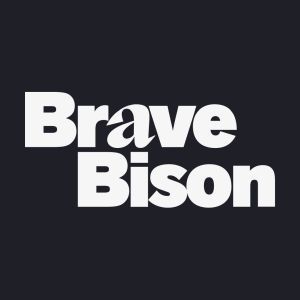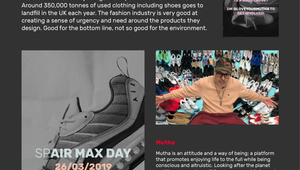
Bossing It: The Power of Coaching with Louise Quenzer

Louise Quenzer is head of content, The Studio, for Brave Bison Performance. Louise has worked in the business for over 10 years and the wider industry since 2008. She is also a certified coach, helping to develop people by giving them space to thrive.
LBB> What was your first experience of leadership?
Louise> My first experience of leadership was on an internship turned freelance stint, at an alternative magazine for women. This magazine was bold and loved to make a statement front page. The editor-in-chief was passionate about creating a space for women and tackling conversations that might have otherwise been hushed. She truly illustrated what being a leader meant and looked like. And since those early days, there have been some hit and miss instances of leadership. But many of the good ones are from women who hold leadership positions. Or by those who truly can lead with empathy, inclusivity, and kindness.
LBB> How did you figure out what kind of leader you wanted to be – or what kind of leader you didn’t want to be?
Louise> For me, it was demonstrated in two ways. By an illustration of what awful leadership (in the early days of my career) looked like and by what fantastic leadership looked like (which I’ve been lucky to have experienced more of). And a real desire to step into a leadership space that embodies purpose, performance, and people in equal measure. Or, in fact, that gives a more favourable weighting to people. I’ve lived and managed by that thought for a good part of five years or more. But it wasn’t until more recently that I came to the conscious realisation that this is how I want to lead. Not just my team, but in every aspect. My journey into coaching has helped me to figure out that to change leadership and workplace culture, it first starts with supporting the capability and the confidence of all our managers. Creating a space for them to evolve into leaders, through the power of coaching.
LBB> What experience or moment gave you your biggest lesson in leadership?
Louise> Becoming a mother. And (my journey to) becoming a coach. These two things gave me the biggest lessons in leadership. Really listening, leaning into the team and what their needs are, and accepting that vulnerability is okay. Share when we make a mistake or when we don’t know, and model what we might want from others. Empowerment to fail, to not always get it right but to try anyway. Being authentically you.
There is a huge expectation placed on people to come to work, show up, put the effort in and just do what is expected of them. When we turn up to work, we bring our whole selves and that comes with all that life’s about. Life’s experiences, its burdens, its moments of good and bad. So, when people do carry out even the smallest of tasks – a thank you goes a very long way. Showing appreciation regularly is a real thing that cannot be undersold.
LBB> Did you know you always wanted to take on a leadership role? If so how did you work towards it and if not, when did you start realising that you had it in you?
Louise> Looking back, it’s always been there. Something innate within me that has been finding its way, it’s route to existing and being. But that has often been a battle against other noisier things in my life. Taking time to work on myself, being vulnerable and really being open has truly evolved me as a person and subsequently as a leader. I started realising it more after this inner work this year. Knowing that I had it in me – hearing it, feeling it. Since then, there is a real distinction in how I operate in my role at work and in other areas of my life. I’ve always been a people focused manager but the way I action it has evolved. I believe it is the time spent knowing every single person, who they are and what they are about that helps to switch you from being a manager of a team to a leader of people. As a result, I went from operating at a management level, keeping the ship afloat to leading by listening, by leaning in, and by learning.
LBB> When it comes to 'leadership' as a skill, how much do you think is a natural part of personality, how much can be taught and learned?
Louise> I think it is part skill and part intent. In that you can’t have one without the other. Learning the skills needed to be a good leader is one thing, but that skill is nothing without good intent, which is a natural part of being a leader. If you own the values of respect, belief in potential, building confidence, trust, and empathy then you are more or less on your way.
There’s much to be said about having a natural connection to being a leader. Something that resonates in the depths of your belly and that lies in the forefront of your mind. But there is a lot that can be learned. In fact, as a leader if you’re not learning everyday then something’s amiss.
No lessons in leadership can be wholly taught though. There is no play-by-play and box-ticking exercise that makes you a leader. There are certainly skills to develop, hone and craft and there are lessons to be learned through doing and experiencing, reflecting, and learning. It’s all part of the process of self-actualisation.
LBB> What are the aspects of leadership that you find most personally challenging? And how do you work through them?
Louise> I truly believe that you are only as strong as your team. And that comes from setting them up for success and doing what you can to create that space for them to shine and represent themselves. Because, in turn, you and the company you work within will too. That inevitably takes a lot of time and energy. So, for me, the challenge is getting that right whilst holding my own boundaries, so there is balance.
LBB> Have you ever felt like you've failed whilst in charge? How did you address the issue and what did you learn from it?
Louise> Yes, failure is what drives us. There is no evolution without it. Sometimes you can have the very best intention, and still get it wrong. This is where the learning comes in. Learning that micromanagement, excessive control and only ever instructing a team gets you nowhere fast. If there is an ask, an expectation, or a need for something then set the example. Show first, then ask.
LBB> In terms of leadership and openness, what’s your approach there? Do you think it’s important to be transparent as possible in the service of being authentic? Or is there a value in being careful and considered?
Louise> Both have their place. There is huge value in being open and offering up vulnerability. Creating a safe and supportive environment can help a team to learn and grow. Once that is in place, it encourages mutual respect and trust. To do that, as a leader you must demonstrate personal integrity, honesty, and sincerity. Seek permission to step into sensitive areas, to speak freely and transparently. You can be both transparent and considered when you acknowledge that everyone is different. So, respect the team’s values, beliefs, perceptions, and learning styles. Engage in open two-way feedback. And seek permission to do so. A leader with a high understanding of psychological safety and of every individual in their team can show up being an authentic leader.
LBB> As you developed your leadership skills did you have a mentor, if so who were/are they and what have you learned? And on the flip side, do you mentor any aspiring leaders and how do you approach that relationship?
Louise> I haven’t had an official mentor, but I have had someone championing me. Supporting me through the most important moments of my career. You need that one (or more) person who sees in you what you’re about, that is your biggest cheerleader, someone who has utter faith in you. Knowing you have that person, gives you a glow and the impetus to continue.
LBB> In continually changing market circumstances, how do you cope with the responsibility of leading a team through difficult waters?
Louise> By using the three C’s. Communication, collaboration, and commitment.
Change and difficult times can be hard. What people need during this is support. When you learn how to facilitate the change around you, then you can learn to work with it and not against it. Your job is not to make it better, but to help people through it. By asking good questions and listening with compassion. Your role is to assist and support people in and through that change. Approaching them with compassion, kind questioning and by setting the groundwork so it is clear whether this is a coachable moment they are willing to engage in.
LBB> As a leader, what are some of the ways in which you’ve prioritised diversity and inclusion within your workforce?
Louise> The way in which I am doing this is to show up with a mission to challenge or change the status quo regardless of my position. I may not hold a C-suite leadership position, but I’m committed to learning, development and building a greater sense of awareness and inclusivity in the workplace. Through my own experiences, I’ve noted ways of improving policies and workplace experiences. But doing this is not a box-ticking exercise. It is about bringing together people from around the business to understand from a variety of others their ideas and approaches to ascertain the best creative solutions and improved ways of thinking to make the change/improvements happen in an authentic and inclusive way.
LBB> How important is your company culture to the success of your business? And how have you managed to keep it alive with increases in remote and hybrid working patterns?
Louise> Extremely important. Company culture is not just drinks after work and perks. It’s how we choose to show up for people. It’s in how we create space for everyone. It’s in how we show up for each other. Effective communication is the lynchpin of all human interaction. So, it is leaning in, really listening, and applying evidential outcomes to any points that are raised. It’s about connectedness, no matter the locale.
LBB> What are the most useful resources you’ve found to help you along your leadership journey?
Louise>
· Love + Work by Marcus Buckingham and No More Sh*t Managers written by Jo Wright are two books I love.
· The founding principles of coaching.
· My peers on LinkedIn such as Sarah James, Claire Hill Dixon, Gemma Ellison, Kate Jones, Jo Wright, and many others.
· In my own lessons learned and the self-reflections I make regularly.













